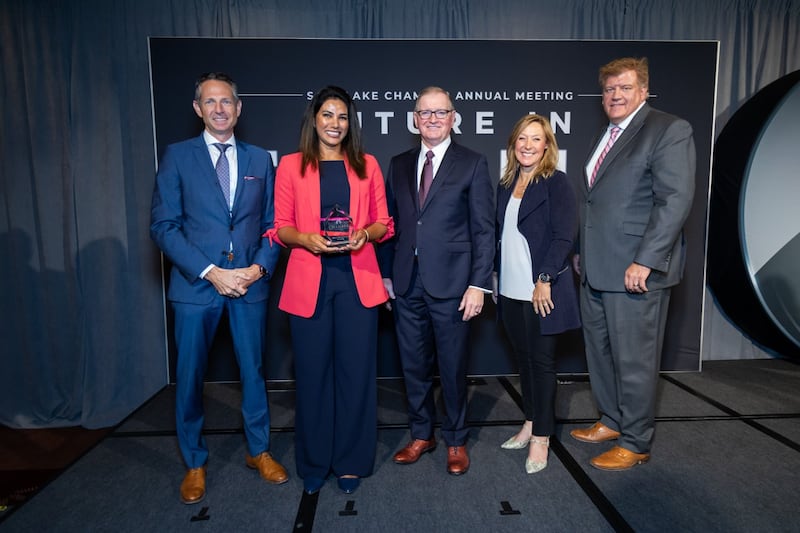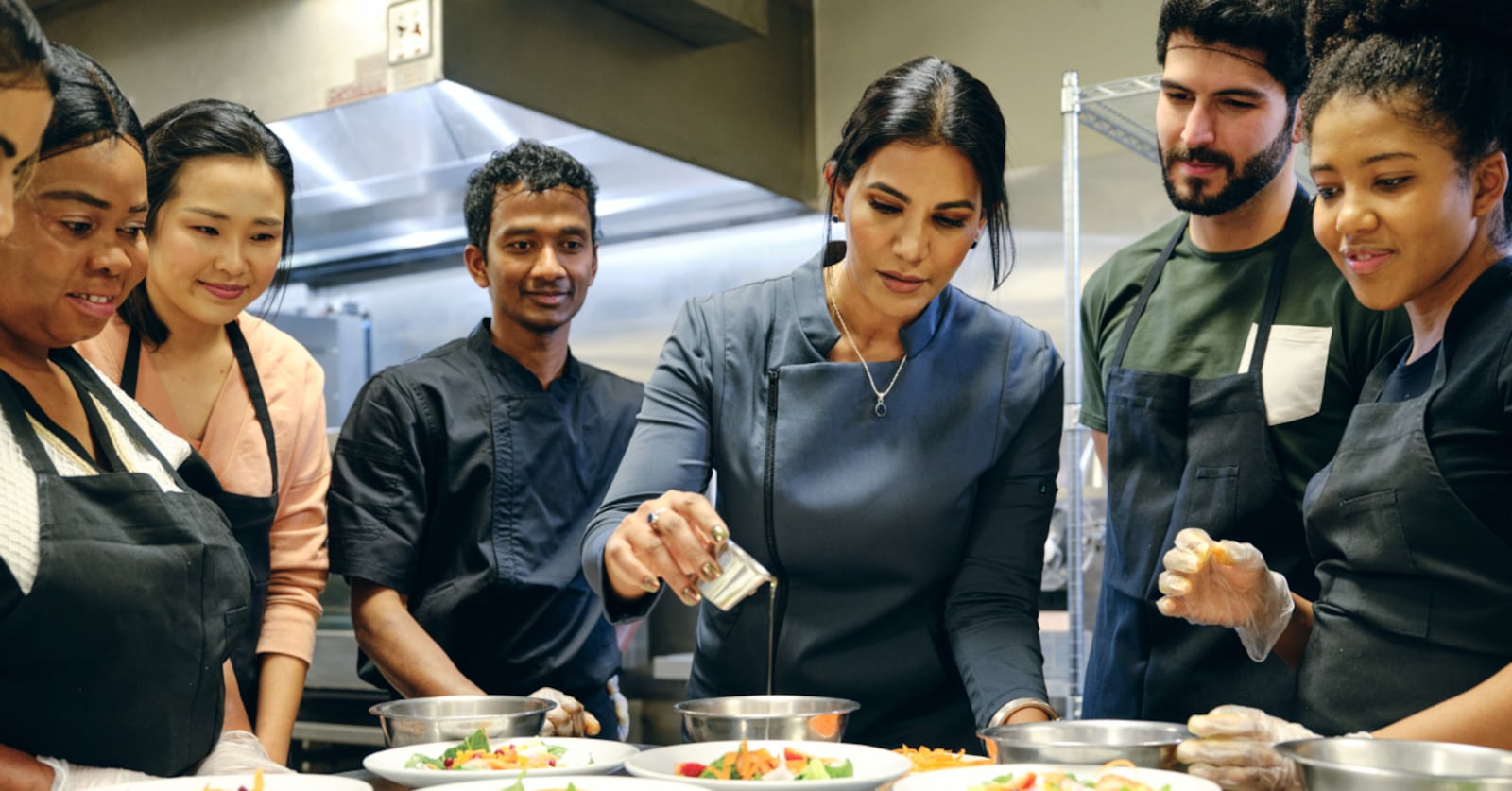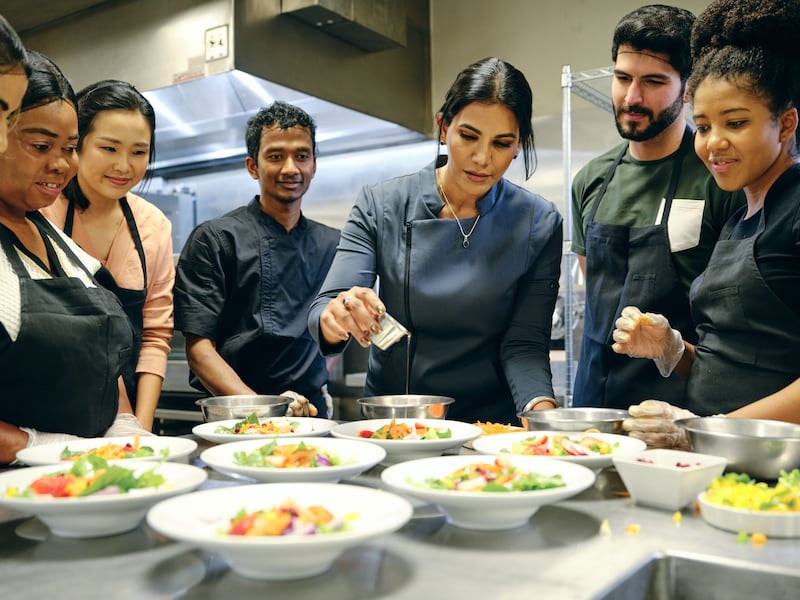
Iwas born in a small town called Kakinada in the southern Indian state of Andhra Pradesh. I spent my childhood there until my family relocated to Chennai, a city in a different state, where I completed my high school and college education. Afterward, I pursued a master’s degree in mass communications from Symbiosis International University, located near Mumbai in the city of Pune.
I entered an arranged marriage at age 23 and moved to the United States in 2001. Upon arrival, my husband held an H-1B work visa while I was issued an H-4 dependent visa, which unfortunately did not permit me to work during that time. The good news for others is that, nowadays, the H-4 visa does allow individuals to be employed.
Having finished my master’s degree, I was eager to enter the workforce, but learning I couldn’t work was disappointing. To keep myself busy, I attended the University of Utah and completed another master’s degree program in integrated marketing and communications. Upon graduating, I met the then-director of the Women’s Business Center of Utah, Nancy Mitchell.
I told Nancy I had just finished my master’s program in the U.S. and I’d love to get into the workforce. She said to me, “You know, we have volunteer opportunities. Do you want to intern at the Women’s Business Center at the Salt Lake Chamber?” I was excited to get to work, so I accepted a volunteer position and worked as an unpaid intern for the next two years.
My role at the Women’s Business Center encompassed various tasks such as filing, answering calls and rendering assistance to women seeking consultation services for starting a business. It was an enriching experience.
Later, the Salt Lake Chamber sponsored me for a work visa, and I was able to start working. I worked at the Chamber from 2002 to 2010, including the two-year internship, and eventually became the program director of the Women’s Business Center.
Since I couldn’t work when I first moved to the U.S., starting as an intern at the Women’s Business Center and then becoming the director of that program was a great start for my career. It set the tone for a lot of things, and for that, I’m very grateful.
Pursuing my passion for food
After helping other women realize their entrepreneurial dreams for eight years, I was ready for it to be my turn. In 2010, I decided to pursue my passion for food, but the idea didn’t simply “come to me.” Instead, I spent two or three years doing a lot of soul-searching, trying to figure out what I wanted to do. After three years, I realized “it” was food. Food has always been a big part of my life growing up in India. I remember from as young as age six, I would go into my kitchen, cook sweets and learn how to make spice blends with Kanthama.
Kanthama was our family help who would come and help us cook, a common thing in India. She was an older lady, and I loved her wisdom and how she wanted to share her knowledge and teach me how to cook.
I wanted my business to involve food, so I started a line of spice blends. I knew everybody loved my cooking, which helped give me the confidence to pursue my dreams. I thought to myself, “I’m a good cook. I love food and serving people, so I want to do something that involves food and spice blends.”
I realized most people love Indian food, but it was hard for them to cook at home because of the complexity of spices that go into the recipes. I started experimenting with kitchen pantry spices by roasting and grinding them. I came up with solutions that made it easier to cook Indian food so home cooks wouldn’t have to get five different types of whole spices but instead just buy one spice blend and prepare a nice dish.
I sold my spice line at the Downtown Farmers Market in Salt Lake City in 2010. I had been working at the Chamber and with the Downtown Alliance. Having my spices there worked out well and helped me access many resources.
In 2011, I decided to open an Indian restaurant with a part loan from Zions Bank and family investments. South Jordan, Utah, was up and coming at the time, plus the Sri Ganesha Hindu Temple and the India Cultural Center of Utah were located there. I also lived close by.
Back in 2011, there was one Indian restaurant that specialized in Northern Indian food and another that served South Indian food. I wanted to bring in more food from the north, south, east and west parts of India because the food throughout the country is so diverse.
It’s hard to call everything “Indian food” because it’s regionally specific, and having lived in different regions of India, I understood that. I wanted to bring forth the variety and diversity of Indian food. I wanted to change things in Utah so it wasn’t the tradition to have Indian food once a year—instead, I wanted to make it a more casual and regular dining ritual. I wanted to elevate the image of Indian restaurants being a hole-in-the-wall to a warm, welcoming ambiance with good food and good service—nothing Michelin-star extraordinary, but consistently good, classic favorites. That’s why our menu has just a few items from each category representing Indian food at its best. The dishes are also well-known and popular because Utah still does not have as advanced a palate as places such as California or New Jersey. I’ve been in the food industry for 13 years, and when I first started, I don’t think even 10 percent of the Utah population had tried Indian food.
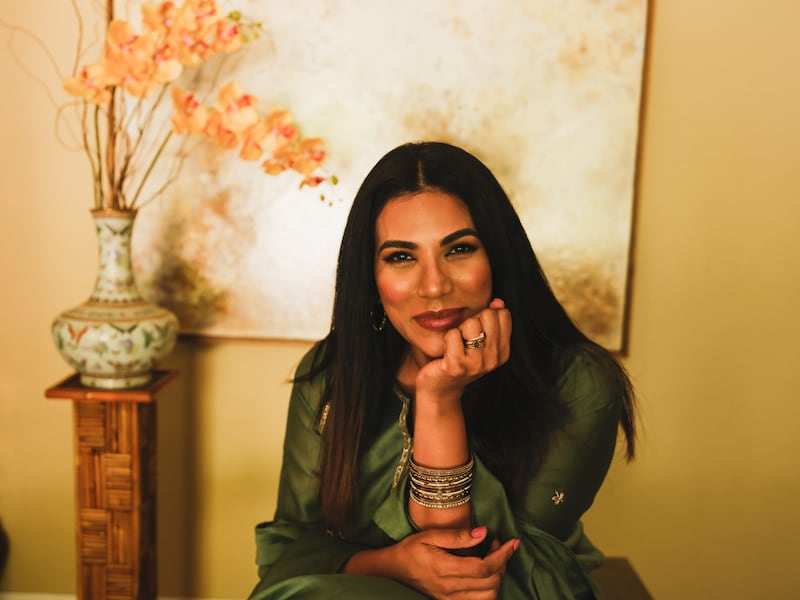
When I opened my first Saffron Valley restaurant in South Jordan, every time someone said, “This is the first time I’m eating Indian food, and I love it,” it was such a rewarding feeling. Knowing I was sharing something new and unique—and that customers were enjoying that while bringing people together over food—is the greatest joy of being in the restaurant business.
My first restaurant location in South Jordan did well in the local and Indian communities. When the word spread, people started saying, “You should open one downtown or at the University of Utah.”
I was looking for a space for our second restaurant and found the old Pagoda restaurant, which is historically relevant because it has been around for over 50 years. The Japanese restaurant was opened by a couple in 1946 and later relocated to 26 E Street in Salt Lake City, just north of South Temple. When they retired, there was nobody to run it, so I felt a sense of pride and responsibility about moving into that space and opening our second restaurant in 2013.
Soon, the locals from the Avenues neighborhood became regulars. The same thing happened in South Jordan and at our third restaurant in Sugar House, which we opened in 2017. When we bought that old brick building, it had been a mattress store on one side and a pizza shop on the other. It had to be gutted from the inside out, and we transformed it into a warm and welcoming restaurant space. We were in for a big surprise when we took it over—we had no idea there were homeless people and drugs in the building, so we had to clean up the shop and revitalize that corner. The neighbors were so thankful.
There are a lot of perks to being in business. It’s not just about building this profitable company but the difference it makes in people’s lives, whether it’s through food, revitalizing the spaces or being a part of the community. Building community has been so gratifying.
The fourth Saffron Valley opened in 2019 in Mountain View Village in Riverton, Utah. Mountain View Village recruited us. It’s a very nice space with a loft and the same warmth and feeling as our other locations with our colors of saffron and gold and the brass décor. We have the same menu at all four locations because I wanted to keep it uniform by offering the same classic dishes from India in different categories and regions.
In 2019, the University of Utah approached me after conducting a survey to determine which ethnic foods students would like to see on campus. I believe Indian, Korean and Greek were their top choices, so the university asked me to set up shop on campus. It was initially a pop-up, but we now have a presence whenever school is in session.
We’ve opened five Saffron Valley locations in under 10 years. In 2016, I opened a bakery next door to the South Jordan restaurant called Biscotts Bakery and Café. I wanted the bakery to be like a chai house because chai is a big part of Indian culture and cuisine, as well as cake because of the British influence.
We like our tea, cookies and cakes with our evening tea, so I wanted to bring that element to Utah. In 2017, the community of Daybreak approached me to open a second Biscotts in The Hub Information Center. The third Biscotts Bakery & Café opens in Sugar House this summer.
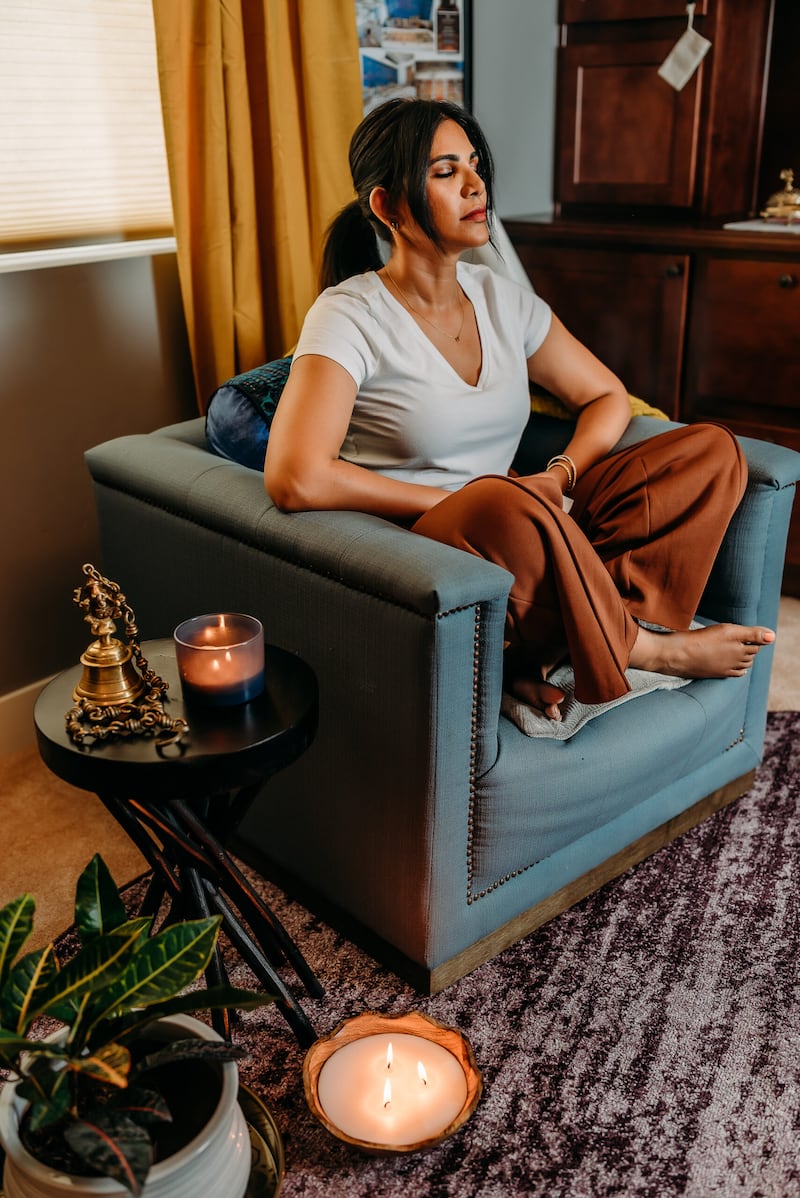
Starting a nonprofit for refugees
My latest project is the RISE Culinary Institute, a nonprofit I established in 2018 to provide refugees with free culinary training and to place them in different restaurants. Having been a restaurant owner for 13 years, I know firsthand that there is a great labor shortage in our industry, as with many industries. I felt someone had to do something about it because so many restaurants are closing, and their menus and hours are shrinking—it’s been painful to watch.
I had this idea during Covid, but it took time to get where we are today. It started as a project from the Utah Refugee Center, but since it began, it’s become more independent. It has received support from so many great partners in the community.
The program model is to train 12 refugees per cohort with four cohorts per year—a total of 48 students or trainees for the first year. It involves three months of hands-on training and six months of paid internship at different partner restaurants. The goal is to provide the students with culinary skills so they can find more fulfilling career pathways and explore their potential. It’s going to be a very enriching experience, both for them and for us.
RISE is a safe space for refugees because they often have so many barriers in the beginning—communication, transportation, childcare and housing barriers, all of which make it hard to integrate into society. When I moved to the U.S. as an immigrant, I had my own challenges starting my career, but I had such great support. I’m happy that, after 23 years in Utah, I’m able to help our refugees.
The training kitchen is located in Sugar House adjacent to the Saffron Valley restaurant. We opened a Biscotts concept attached to the kitchen. Refugees will have the Saffron Valley restaurant, the café and the training kitchen—it’s a very practical model where they’ll have the resources to learn culinary skills but also have access to the restaurant, where they can gain practical experience while still training.
On feeling ‘misaligned’
In 2020, I was going 100 miles per hour. Despite all the awards and recognitions, I felt a misalignment—a void—so I really had to take a deep look at myself. That year, I met with an ankle fracture and was couchbound for eight weeks. I want to talk about this because often, we only discuss our wins and our victories.
I had to stop and reevaluate how everything in my life was going despite all the recognition and success I was getting. After 22 years in my arranged marriage, I decided to divorce, which has been a journey of self-discovery and spirituality. It’s been rewarding to know that all the answers to my questions and problems really are within.
I found meditation as my spiritual self-care practice. I’ve been more spiritual the last few years and have leaned into my inner strength and intuition, which has been humbling and empowering. I’ve spent many hours in contemplation and reflection, embracing my ancient Indian wisdom of this holistic way of living—the harmony between the body, mind and spirit.
I recently launched a new venture called the Soul Spice Project, which focuses on teaching people that food not only nourishes the body but also the mind and spirit and that practices like meditation, breathwork and yoga are necessary to avoid psychosomatic diseases. One day, I intuitively woke up and decided I was not going to eat meat or seafood anymore. Not everybody has to do that, but it’s helped me. Taking the time to get quiet and go within—calming our minds and listening to our bodies—is the best thing we can do for ourselves.
It’s been great to continue to work on food as my passion through the self-care practices of yoga, meditation and breathwork. RISE has given me a renewed sense of purpose by helping refugees explore their own potential. Soul Spice has given me the renewed energy to explore my own potential and follow my purpose.
I would like to encourage people to redefine what success means to them. Sure, it’s about achievements and fame and recognition, but at the end of the day, the personal fulfillment piece is important. If we start from that place, we don’t have to work as hard as we think.
When you’re in a state of manifestation, things come to you because you are operating at a different vibration. You no longer have to try so hard. There are two ways: the hard way or the mindful and effortless way.
In my opinion, living to your highest potential—where you break cultural and societal conditioning, find your authentic self, live life on your own terms and, most importantly, are a kind and compassionate human being—is not as hard as one might fear. I would love to create that culture in the corporate world and redefine what “success” really means.
